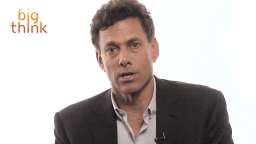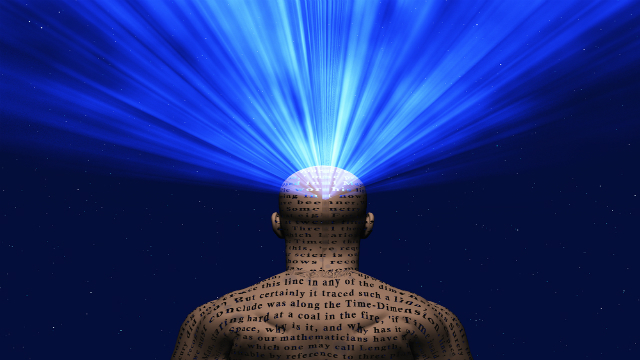Using super cloud computing, IBM has created a public database of chemical compounds extracted from 4.7 million patents and donated it to the National Institutes of Health.
Search Results
You searched for: Computers
“Give me your tired, your poor, your huddled masses yearning to breathe free…”Immigration is an integral part of the story Americans tell themselves about who they are. So why is it so difficult to immigrate here?
It’s unusual for a website to charge for its services, admits Lynda Weinman, but the fee “allows us to have a sustainable business model where we can pay contributors.” Her approach represents a compromise between the open ideals of the web and the financial needs of the people who fill its pages.
Using about 400 transistors, M.I.T. computer scientists have created a silicon chip that mimics one human synapse, removing a barrier to creating a machine that can learn like people.
Media entrepreneur Saad Mohseni Mohseni describes Afghanistan today as the way the U.S. was in the 1950s. But the rate of change is very much accelerated, meaning “Afghanistan will resemble the western world vis-à-vis media probably in the next five to ten years.”
A new camera developed at MIT can snap a shot every 0.6 trillionth of a second. That’s fast enough to catch a laser pulse moving through a glass bottle or bouncing off a tomato.
Researchers at Carnegie Mellon University have discovered that a steady diet of cold, fast food is what caused the rapid growth of early supermassive black holes at the dawn of the universe.
While there are many ways to heat your home during the winter months, here’s one you probably haven’t thought of yet: using heat generated by computer servers. In a conceptual […]
It’s a sad but true fact that most data that’s generated or collected—even with considerable effort—never gets any kind of serious analysis.
It’s dangerous business calling any tech innovation idiotic these days. The next thing you know, the company’s worth $50 billion. But it is hard to imagine many (hearing) people beyond […]
Calls are rising in the West for tougher actions against Iran. Here’s why Obama must strongly embrace a cold-war-style strategy of containment. Patient vigilance is called for.
While the president is “the ultimate authorizer of Armageddon,” what if his mind “is deranged, disordered, even damagingly intoxicated?
When Harvard researchers created a computer game that mimicked online social networks, they found that selfish people were quickly excluded, motivating a change in behavior.
In his groundbreaking 1995 book Descartes’ Error, neuroscientist Antonio Damasio describes Elliott, a patient who had no problem understanding information, but who nonetheless could not live a normal life. Elliott […]
Amid growing concerns about the psychological impact of widespread digital ‘enhancement’ of photos comes a new tool to reveal how much fashion and beauty pics have been altered.
Strauss Zelnick, CEO of Take-Two Interactive, views tablet computing as a media revolution.
▸
2 min
—
with
Joi Ito has championed the MIT Media Lab’s inter-disciplinary approach to problem-solving. That means instead of specializing, going deep enough in a number of fields in order to understand the nuances and connect with other experts.
We’ve had the industrial revolution, and now we’re amid the data revolution. ‘Big data’ is a tectonic shift that will continue to affect many things we do for decades to come.
The latest X Prize competition was unveiled to “develop a mobile solution that can diagnose patients better than or equal to a panel of board certified physicians.”
Skype programmer Jaan Tallinn isn’t so sure we’ll ever be able to build networks that can replicate– even in a business context – the communicative power of meeting in person. Instead, he believes, we’ll continue to edge asymptotically closer.
More than half the world’s population lives in cities, a percent that is estimated to increase to 70% by 2050. Much of the urban growth will be in the emerging […]
It is widely accepted that educational leadership has great influence on student outcomes, and effective leaders can bring about positive changes even to troubled schools. Leadership is second only to […]
The brain is hardwired for storytelling. What stories give us, in the end, is reassurance. And as childish as it may seem, that sense of security – that coherent sense of self – is essential to our survival.
How could science fiction get it all so wrong? Big Think posed this question to Jim Kakalios, Professor of Physics at the University of Minnesota in a previous post. In […]
Here’s why the B.B.C. has switched off its auto-feed tweets during the day—human tweets are more likely to get people interested and engaged, retweeting and clicking through.
“If you want to replenish your visual thinking, you have to go back to nature,” David Hockney says in Bruno Wollheim’s film David Hockney: A Bigger Picture, “because there’s the […]
An extreme-ultraviolet microscope for creating the next generation of microchips has been created by scientists in collaboration with leading semiconductor manufacturers.
Stanford’s experiment in offering its three most popular computer science classes to the public for free online has seen a huge take-up, with 200,000 people enrolled.
Last month, I posted my review of “An Unquenchable Thirst”, Mary Johnson’s luminous and enlightening memoir about the twenty years she spent as one of Mother Teresa’s nuns. After writing […]
The high-tech parents from Silicon Valley are now sending their kids to a school—the Waldorf School of the Peninsula—that sells itself as computer-free. Why? Such technology is a distraction, turning […]





























